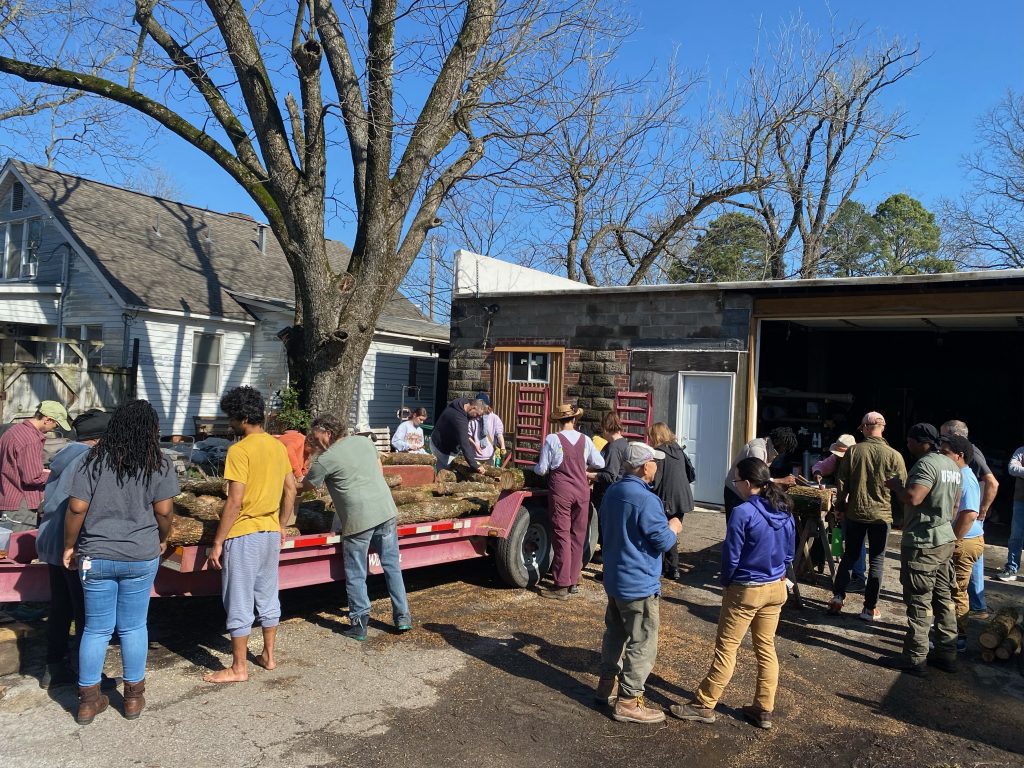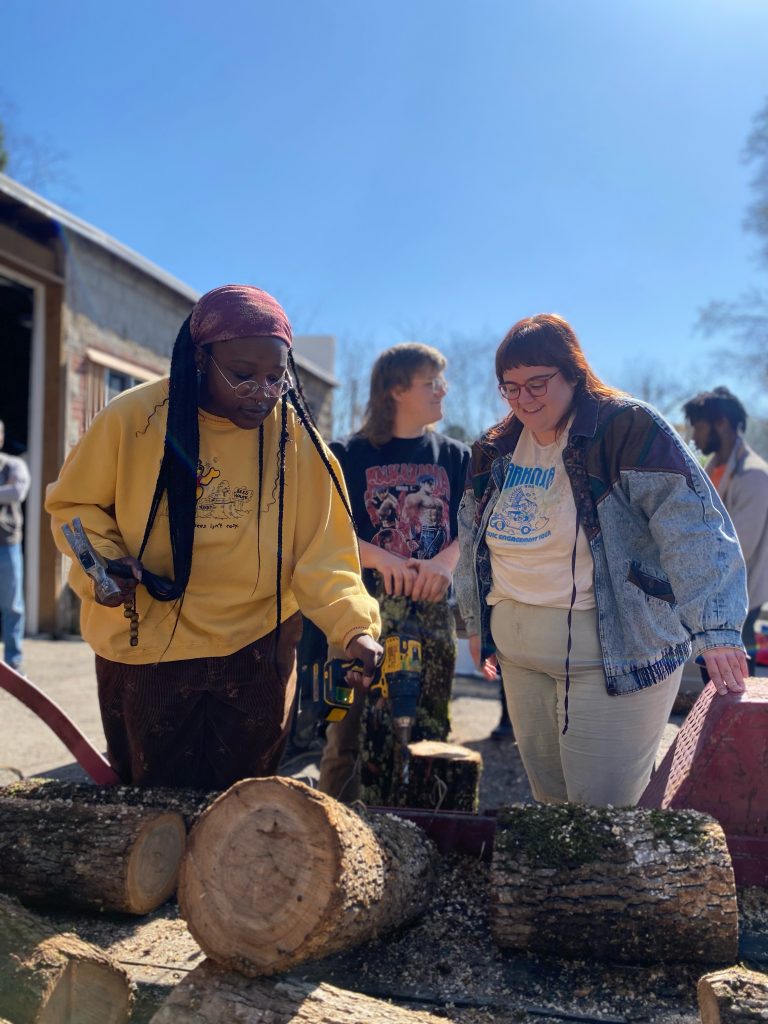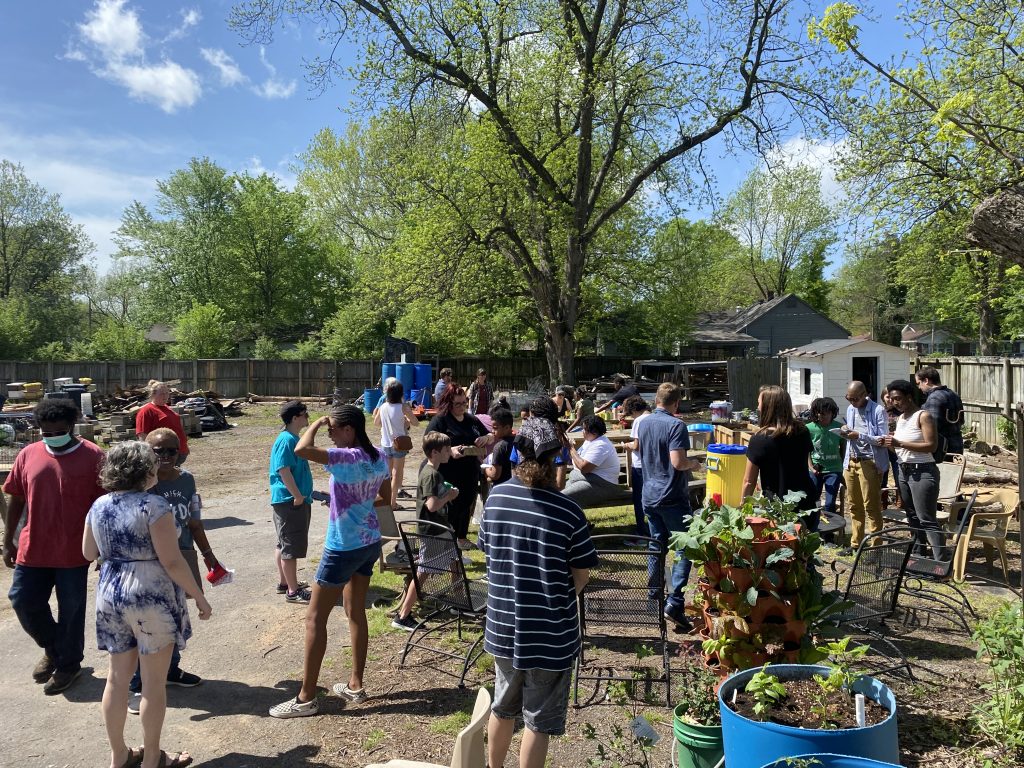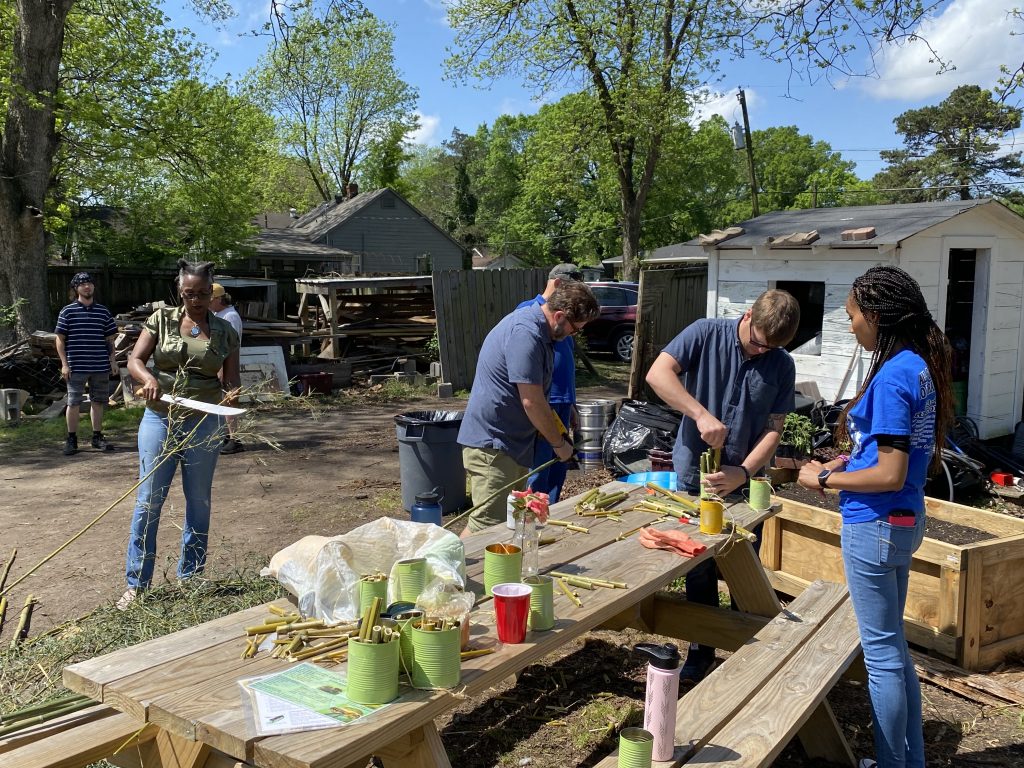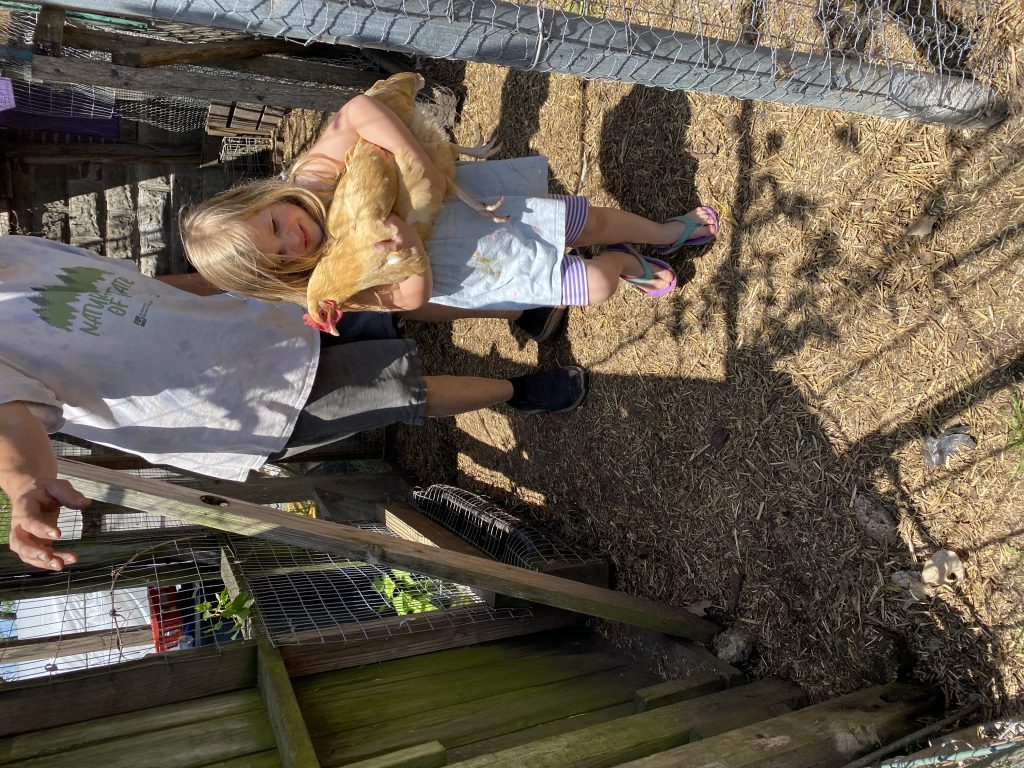Urban Patchwork and its network of growers promote urban farming across Pulaski County
By Adena J. White
“Growing food is in my blood.”
For Gabe Bland, farming is part of his lineage. The Elaine, Arkansas, native comes from a family of sharecroppers. He calls Little Rock home, too, splitting his time between Elaine and the capital city as a child and eventually graduating from Little Rock Central High School.
Bland’s rural and urban upbringing are what fuels his passion. He uses both the process of farming and the food he produces to connect people. He is building relationships with neighbors and other community members – while educating them about urban farming practices and providing healthy foods.
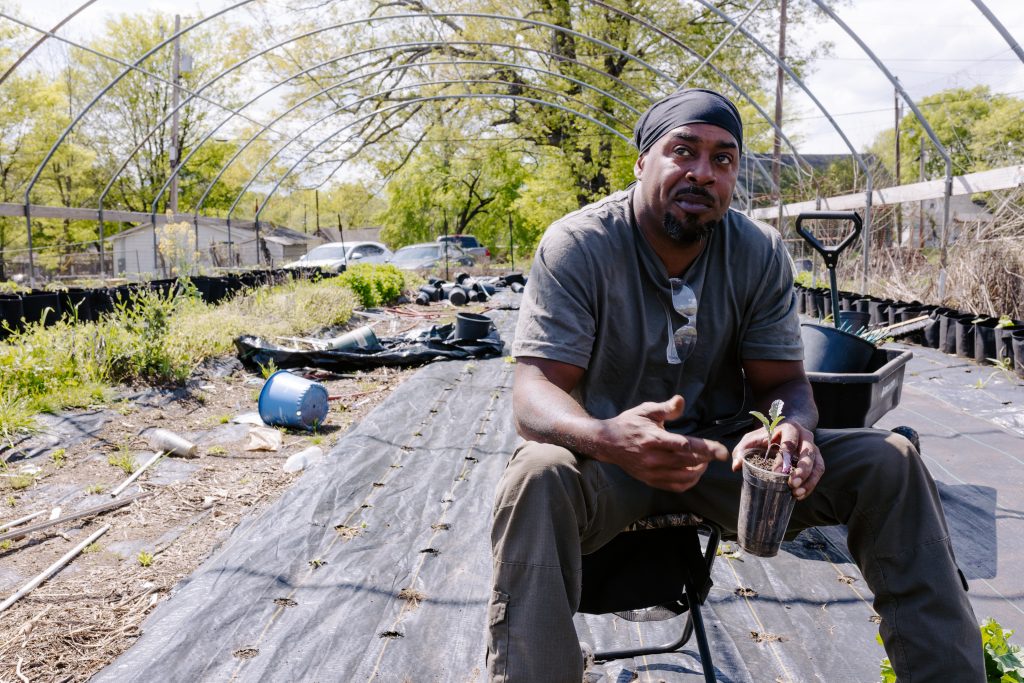
Connecting the Community through Food
Bland began operating his third urban farm, Turtle Island, in the South End neighborhood of Little Rock, which runs south of Roosevelt to Interstate 30, in June 2022. An experienced property manager, he saw an opportunity to purchase lots that once housed vacant apartment buildings, transforming 3314 South Arch Street into a small farm and roadside food stand.
Through a partnership with Urban Patchwork, Bland plans to expand Turtle Island into a neighborhood food hub and commercial kitchen for growing, storing, selling and socializing around food in the South End. His vision is to bring the community together by hosting block parties, cookouts on a hibachi grill where guests can prepare and eat food grown on the farm, gardening classes and even yoga sessions.
“I want this to be more than just a store,” he said. “We want to bring people together around food.”
Urban Patchwork is a nonprofit network of farmers and backyard gardeners with a shared goal to increase access to fresh food in urban neighborhoods. For the past eight years, experienced growers like Bland who are part of the network have provided materials, tools, hands-on learning experiences, administrative assistance and marketing opportunities to community members. Turtle Island will serve as an educational space centralizing regional resources to help people in low-income, low-access neighborhoods – as designated by the U.S. Department of Agriculture – become more self-reliant.
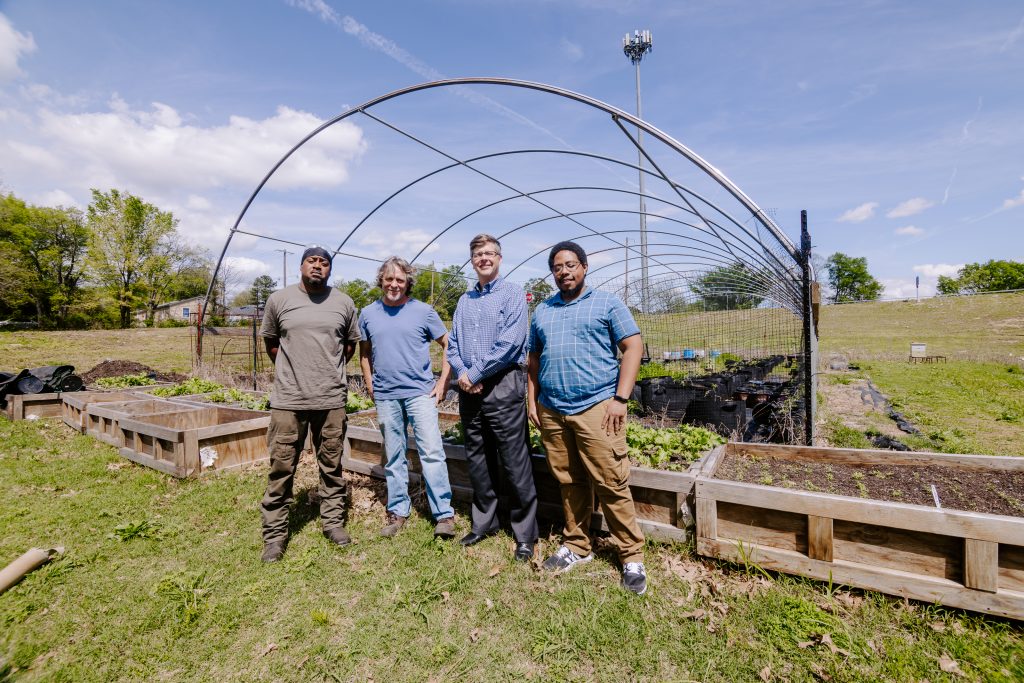
“The farms that are part of Urban Patchwork are not all large urban farms like Gabe’s,” said Dr. Jimmy Parks, executive director of Urban Patchwork. “Some people have small, raised-bed gardens while others may build a chicken coop in the backyard so they can have chickens and eggs. There is activity going on all over town, and we want to help remove any barriers – either real or perceived – that may prevent people from urban farming.”
While access to healthy food is important, bringing people together around food in the South End neighborhood, or any neighborhood, is an equally big part of what Urban Patchwork is all about.
“Motivating people to eat healthy food is not our objective, but I think if they’re around it, see that it tastes good and are able to have some fun growing and cooking it, they will naturally eat more of it.”
Educating Community Members about Urban Farming
Through hands-on learning experiences, Urban Patchwork aims to equip people of all ages with the skills necessary to practice sustainable urban farming. Educational opportunities include building garden beds and picnic tables, growing mushrooms, preserving food and harvesting chickens.
“We try to turn everything we do into a class,” Parks said.
Community members who participate in Urban Patchwork’s learning opportunities leave with a better understanding about what is possible to produce on a small amount of land.
“You don’t have to have a lot of space to be able to produce a fair amount of food,” said Urban Patchwork board member Neil Denman. “It can be done in anybody’s yard, apartment patio or terrace, or right outside of an office. You can garden just about anywhere.”
Another benefit to educating people is to help them expand their palate. Bland said that many people buy the same produce because they may not know how to prepare foods they are unfamiliar with.
“I admit that I didn’t know what arugula was,” he said. “Even though I was eating it in a mixed salad. I want to help expose people to different types of healthy foods and teach them how they can pair and prepare them.”
Increasing Access to Healthy Food
Through its network of urban farms across Pulaski County, Urban Patchwork aims to expand access to fresh, local food in neighborhoods that do not have a grocery store within walking distance of their home. One purpose of the project at Turtle Island is to increase the capacity of the neighborhood food hub to provide local food to the 2,300 residents in the South End neighborhood.
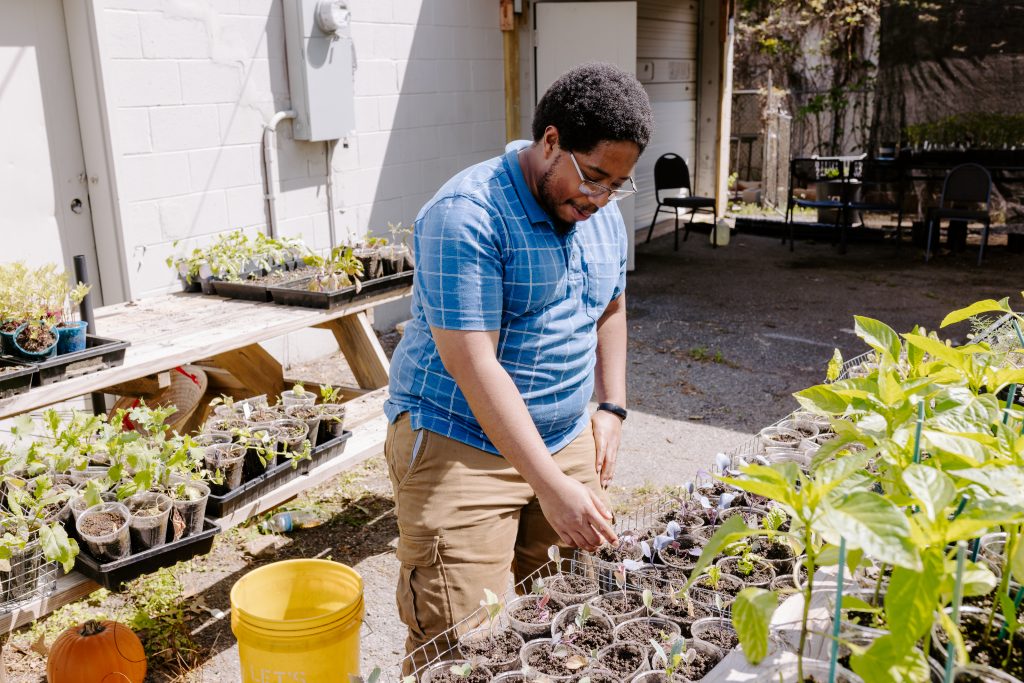
When successful, Parks expects that the community will be less dependent on stores and providers outside of their neighborhood. The ultimate goal is that the health of these neighborhoods – both the physical health of the residents and the social cohesion – will improve as more people grow, prepare, eat and share local food.
“One reason people have limited access to local food is that they just don’t know where to get it,” Parks said. “The Turtle Island project is a way to introduce people to one another at food- and garden-related social events in the South End neighborhood.”
Since opening nearly a year ago, Turtle Island has provided fresh, nutritious produce from more than 20 local growers to neighborhood customers. Consistent with its commitment to education, customers receive a recipe card with each purchase on how to prepare the food. The stand at Turtle Island is currently open one day a week for four hours, weather permitting, with plans to expand its hours, recruit more local food producers, and host more events and classes once the commercial kitchen is constructed.
“We want to make it a whole thing,” Bland said.

